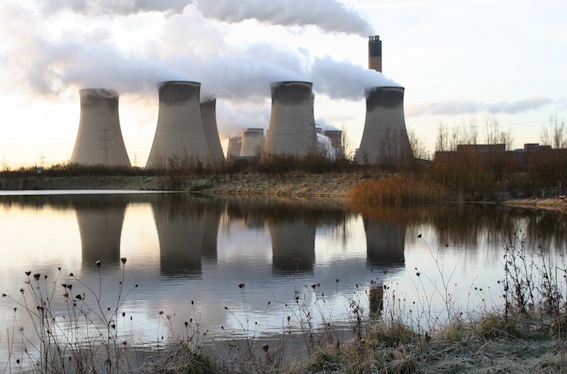
Drax will partner with Leeds-based C-Capture and invest £400,000 in what could be the first of several pilot projects undertaken at the north Yorkshire plant to deliver BECCS demonstrators.
Drax Power Station became the largest decarbonisation project in Europe by upgrading its existing facilities to burn wood pellets in place of coal. If the pilot is successful, Drax will examine options for a similar re-purposing of existing infrastructure.
https://www.theengineer.co.uk/issues/july-2015-online/drax-group-operations-director-peter-emery/
The first phase of the project will investigate whether C-Capture’s solvent is compatible with the biomass flue gas at Drax Power Station. A lab-scale study into the feasibility of re-utilising the flue gas desulphurisation (FGD) absorbers at the power station will also be carried out to assess potential capture rates.
FGD equipment reduces sulphur emissions from coal, but has become redundant on three of the generating units at Drax that have been upgraded to use biomass, which produces lower levels of sulphur.
Depending on the outcome of a feasibility study, the C-Capture team will proceed to the second phase of the pilot in the autumn, when a demonstration unit will be installed to isolate the carbon dioxide produced by the biomass combustion.
Will Gardiner, CEO, Drax Group, said: “If the world is to achieve the targets agreed in Paris and pursue a cleaner future, negative emissions are a must – and BECCS is a leading technology to help achieve it.
“This pilot is the UK’s first step, but it won’t be the only one at Drax. We will soon have four operational biomass units, which provide us with a great opportunity to test different technologies that could allow Drax, the country and the world, to deliver negative emissions and start to reduce the amount of carbon dioxide in the atmosphere.”
C-Capture is a spin-out from the Department of Chemistry at Leeds University, established through funding from IP Group.
https://www.theengineer.co.uk/video-of-the-week-co2-scrubber-wins-shell-award/
Chris Rayner, founder of C-Capture and Professor of Organic Chemistry at Leeds University, said: “We have developed fundamentally new chemistry to capture CO2 and have shown that it should be suitable for capturing the carbon produced from bioenergy processes.
“The key part is now to move it from our own facilities and into the real world at Drax. Through the pilot scheme we aim to demonstrate that the technology we’ve developed is a cost-effective way to achieve one of the holy grails of CO2 emissions strategies – negative emissions in power production, which is where we believe the potential CO2 emissions reductions are likely to be the greatest.”
A report by the Energy Technology Institute in 2016 has suggested that by the 2050s BECCS could deliver roughly 55 million tonnes of net negative emissions a year in the UK, which is approximately half the nation’s emissions target.
Responding to today's announcement, Almuth Ernsting from Biofuelwatch said: “It is highly ironic that Europe’s first ever BECCS project will involve capturing some of the CO2from a plant that burns vast quantities of wood from clearcut carbon-rich and biodiverse forests.
"A stable climate needs more, not less, thriving forest ecosystems, which play a vital role in regulating rainfall cycles and sequestering carbon. Drax’s announcement illustrates the fallacy of the idea that BECCS can save us from catastrophic climate change.”





Labour pledge to tackle four key barriers in UK energy transition
I'm all for clarity and would welcome anyone who can enlighten me about what Labour's plans are for the size and scale of this Great British Energy....